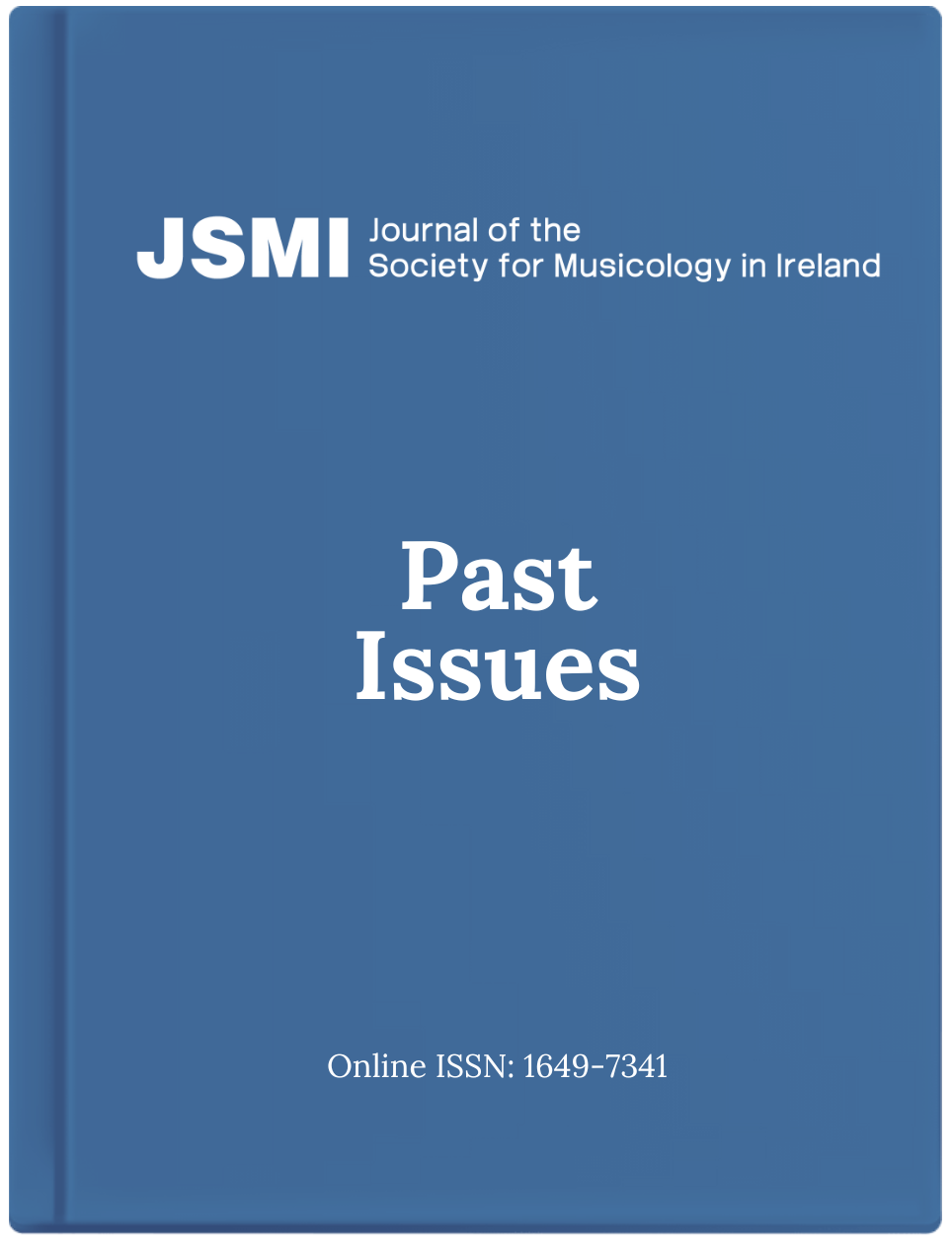Brutalising the Banal: The Music of Gerald Barry and the Late Theatre of Samuel Beckett
The Music of Gerald Barry and the Late Theatre of Samuel Beckett
DOI:
https://doi.org/10.35561/JSMI20252Keywords:
Gerald Barry, Samuel Beckett, Musical Material, Oscar Wilde, Karlheinz Stockhausen, Mauricio Kagel, theatre, modernism, postmodernism.Abstract
Abstract: The late impact of musical modernism in Ireland in the 1960s and 70s meant that many young Irish composers looked instead to the legacy of Irish literary modernism and, in particular, to the figure of Samuel Beckett for inspiration. This is nowhere more apparent than in the music of Gerald Barry whose first significant piece Lessness (1971, since withdrawn) was a setting of Beckett’s short prose text for soprano and orchestra.
While Beckett’s influence on Barry has been noticed in passing by several commentators, this article argues that it is Barry’s choice of familiar materials and their subsequent reanimation through a variety of ruthlessly objective procedures that demonstrates an affinity with the late theatre of Samuel Beckett. This essay will discuss these techniques and explore what implications they have for interpretation in Barry’s stage works, particularly his setting of Oscar Wilde’s The Importance of Being Earnest.
Downloads
Published
Issue
Section
License
Copyright for articles and reviews published in this journal is retained by the authors, with first publication rights granted to the journal. By virtue of their appearance in this open access journal, articles are free to be used, with proper attribution, in educational and other non-commercial settings.
It is the responsibility of the author to secure (and, if necessary, pay for) written copyright permissions for the reproduction, in this online journal, of any illustrations, images, music notation, audio and video files, or any other copyright materials, that are included in the author's article.



